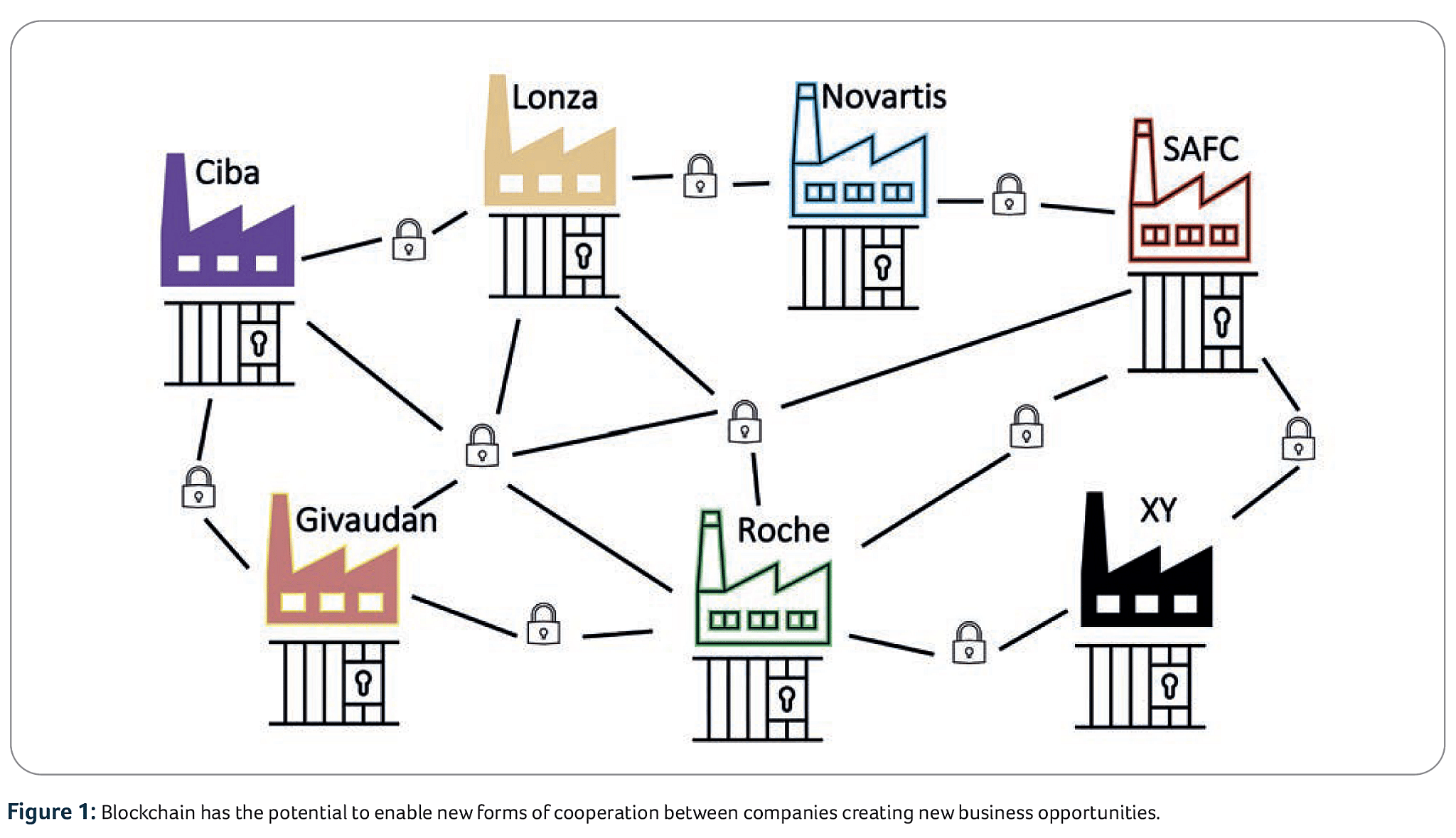- Get directions
- Leave a review
- Claim listing
- Bookmark
- Share
- Report
- prev
- next
- Monday, May 2, 2022 @ 10:00 am
Blockchain has the potential to become a true game changer in the industrial biotech sector, providing smart contracts and interactions that automatically enforce rules and penalties.

Hans-Peter Meyer
Swiss Academy of Engineering Sciences SATW | Head, Working Group Biotechnology
The technology is helping the Swiss pharmaceutical-chemical industry to cooperate in exploiting new business opportunities based on mutual interests and knowhow. Blockchain could also facilitate greater collaboration between smaller players in the sector, allowing process and product development to be radically simplified and accelerated.
Switzerland leading the way in blockchain and DLT
Switzerland is one of the leading global locations for blockchain and distributed ledger technology (DLT)¹ and also importantly provides the accompanying legal framework to enable innovation in this field. (Blockchain applications are discussed further in the S-GE article on Page 40.)
Blockchain technology first became known as a tool for cybercurrency but its utility in other sectors is now being recognized. It can provide a digital “marketplace” for bioprocess, engineering or product solutions, and allow the parties involved to feel more comfortable uploading and exchanging pre-competitive and competitive knowhow.
For this purpose, a project was started with the Blockchain Lab of the Lucerne University of Applied Sciences & Arts to develop blockchain as a decentralized database, jointly operated by industrial biotech users, that allows people to transmit information to each other in a forgery-proof and transparent manner.
The logical continuation of another trailblazing idea – the Swiss Industrial Biocatalysis Consortium (SIBC)
From drugs to vitamins, from cosmetics to colors, from pesticides to polymers, organic chemical synthesis is at the center of a huge range of everyday products. In addition, biotechnology has become an indispensable tool for enterprises using organic chemical synthesis. In 2004, six Swiss global players in the pharmaceutical chemical industry founded the SIBC to cooperate in creating new businesses using biotechnology for organic chemical synthesis².
At the time, the legal framework and information tools were too sluggish to achieve its objectives, but now blockchain has the potential to realize the original purpose of the SIBC to cooperate in creating new business opportunities.
Meeting the challenges of the pharmaceutical chemical industry
“Organic chemistry” has been the basis of a successful industry in Switzerland, but it faces major difficulties meeting the requirements for a sustainable future. One issue is the unacceptably high E-Factors (ratio of kg of waste per kg of manufactured product) in chemical manufacturing, which have become prohibitive with the increasing complexity of manufactured molecules. Decarbonization is another requirement driven by the CO2 price which has been drastically increased to USD 100 per ton by Swiss Re (the leading Swiss reinsurer), and is expected to reach USD 200 by 2030 (compared to the global average of USD 5). Climate change and resource overuse makes the supply of naturally sourced starting products difficult or even impossible, for example in the flavor & fragrance industry. On top of all this, consumers are increasingly asking for “green” and “organic” products, while political decision makers require sustainable industrial processes.
The pharmaceutical and chemical industries were responsible for 52% of Swiss exports in 2020, with a value of CHF 116.4 billion³. There are roughly 900 chemical companies in Switzerland⁴ and the success of the sector is still largely due to “red biotechnology”, in particular to the production of parenteral, large pharmaceutical molecules. Although these companies are able to compete on the world stage⁵, and are implementing innovative sustainable technologies, there is still a lot of fragmented knowledge and knowhow that could be combined in innovative ways. We believe that blockchain can facilitate this, allowing processes and product development to be radically simplified and accelerated by collaboration between Swiss companies
References
[1] Blockchain / DLT State Secretariat for International Finance SIF https://www.sif.admin.ch
[2] S. Hanlon, The Swiss Industrial Biocatalysis Consortium (SIBC): Past, Present and Future. CHIMIA (2020) 74:342-344; doi:10.2533/chimica.2020.342
[3] Swiss Biotech Report 2021. https://www.swissbiotech.org/report/
[4] H.-P. Meyer, O. Werbitzky, Development of Swiss Biotechnology Beyond the Biopharmaceutical Sector. CHIMIA (2020) 74, 345-359; doi: 10.2533/chimia.2020.345
[5] K. Hecht, H.-P. Meyer, R. Wohlgemuth, R. Buller, Biocatalysis in the Swiss Manufacturing Environment. Catalysts (2020) 10:1420-1450; doi:10.3390/catal10121420
